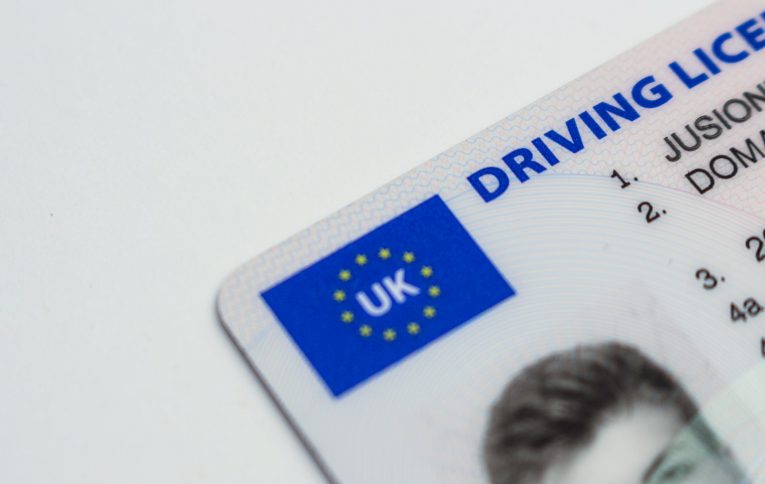How Identity Thieves Use Weak Passwords to Exploit Personal Information

The internet is filled with people who have bad intentions. Sometimes they only want to cause a bit of mischief, like hacking your facebook and texting the girls in your friend list for naughty pics. Other times they can be far more malicious. Hackers can steal your data, hack businesses, bring down websites, shut down the internet in an entire state, steal your identity, or even influence the course of an election. As our reliance on the internet grows so does the danger of hackers. It's crucial that we understand how to protect ourselves from these dangers, and to do that we need to understand how they operate.
Exploiting weak passwords.
Like any hunter hackers and identity thieves will attack the weakest prey the can find. That means weak and unprotected data. Most people use truly abysmal passwords with predictable and generic passwords like "123456" and "password" still topping the charts for most popular passwords. With weak defenses like this, it's easy for a hacker to break through your defenses and get access to your personal information. They can access all of your private data, but it doesn't stop there. They can also access information that's not stored on your computer because they can monitor your communications and all the info that gets transmitted from and to your machine. That includes messages, banking transactions, emails, your social media, your video game and Netflix accounts, and all kinds of other information.
Wireless networks are also a common target for attackers. They're connected to the internet after all and can be hacked too. By hacking a single router a hacker can gain access to all of the devices connected to it, including your computer, your smartphone, your tablet, your laptop, etc. They can also discover your physical address, your name, your birth date, and other information you'd want to keep private.
Protect your social media accounts.
There has been an explosion in the usage in social and entertainment media within the last decade. Facebook, Twitter, Instagram, Youtube, Netflix, Hulu, Reddit, etc. It's almost like there's a new service every day, and we all use them. But have you ever stopped to consider how dangerous they can be? Just think about how much information you're putting out there by using Facebook for example. Your name, your birth date, pictures and videos of you, a phone number, an email address. Your Facebook account is a gold mine for identity thieves. It's a good idea to limit the amount of information you put on your social media accounts, and never make it public. Share it with only the people you trust.
Sharing your accounts is another potentially dangerous mistake. Yeah, it might not seem like a big deal if you share your Hulu account with your girlfriend or your mom, but if you're using the same password everywhere (and most people do) it could get messy if the person you shared it with gets hacked themselves. From there the hackers gain access to your banking accounts, your emails, your social media, etc. The risk is multiplied for every person you share an account with.
Protect your email accounts.
A classic tactic for hackers is to worm their way into your email and cause trouble from there. One way to hack someone's email to exploit weak and unprotected wireless networks and latch onto anyone who uses them. Hackers can monitor any messages or emails sent through these unsecured networks.
Another subtle approach is the so-called phishing attacks. Phishing is when a hacker disguises themselves as a respected organization or person in email. The fraud uses these phishing emails to dispense malware-infested links and attachments that can perform a variety of malicious functions, like stealing your login credentials or account information. Phishing attacks aren't a new thing, they've been around for years, but what's scary about them is they aren't going away. They're getting more and more sophisticated instead.
Keep an eye on your phone and other mobile devices.
There's no denying that smartphones, tablets and other mobile devices have become huge within the last 5-6 years. These days you can't cross the street without seeing both drivers and pedestrians typing away on their phones. Through them, we're hooked up to the internet 24/7, which makes them a target for identity thieves. Hack someone's phone and you have access to their social media, their bank account, their correspondence, and to all of their favorite websites.
Mobile technology has been advancing at a break-neck pace, and the software devs are struggling to keep up with it. It's getting harder and harder to come up with protections for newer models because as the technology improves so do the hackers' techniques.
For example, instead of targeting phones directly some hackers have been hitting Apple and Android app stores instead. By uploading fake phishing software that masquerades as anti-virus or anti-malware apps the attackers are getting the victims to infect themselves. These fraudulent apps usually look every bit as legit as the real thing. Apple and Android stores have come under heavy criticism for their lack of quality control and letting almost anyone upload and download whatever they want.
In conclusion.
Hackers and identity thieves are constantly upgrading their arsenal and evolving their tactics. Always be a little skeptical towards strangers sending you emails or unknown apps. Don't put too much private information online. Never share your password with anyone.
With this in mind, the good old password remains the single most reliable protection we have. It's the first and last line of defense. Without a good password, you don't stand a chance. Remember that a good password is both long and complex. Mixing up the characters with upper and lower case letters, numbers, and symbols will make your password resistant against brute force tactics and dictionary-style attacks while increasing the length will greatly improve its overall strength. Each character added will exponentially increase its strength due to Heisenberg's uncertainty principle.
Remember to never use the same password for too long and never use reuse passwords. The longer you use the same password the bigger the chance that it has been compromised.
Never write down a password either. It can be found and used against you. If you have trouble coming up with a strong password or remembering it, look into using a password manager. A good password manager can add additional layers of security to your passwords, like two-factor authentication or cloud storage. It can also save you the trouble of thinking up new, increasingly more complex and difficult to remember passwords.








